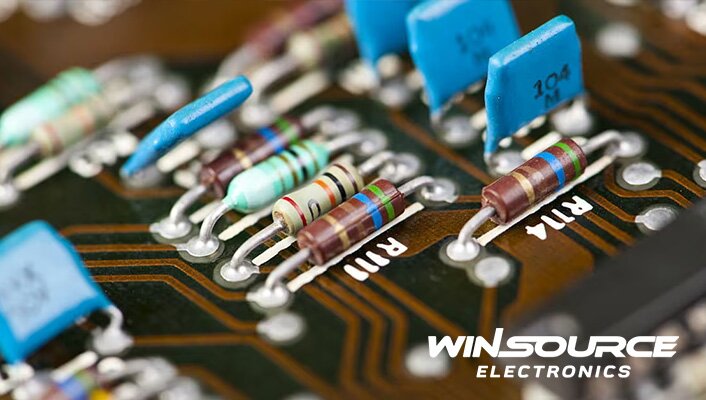
In electronics manufacturing, components play a key role in determining the functionality and reliability of electronic devices. Among these components, through-hole resistors are basic components widely used in various electronic circuits. In this article, we will explore the applications and benefits of through-hole resistors in electronics manufacturing.
Table of Contents
ToggleLearn about through-hole resistors
Through-hole resistors are passive electronic components designed to introduce resistance into a circuit. They feature a cylindrical or rectangular body with two leads that are soldered through holes in a printed circuit board (PCB). Through-hole resistors are available in a variety of resistance values, power ratings, and tolerance levels to meet different circuit requirements.
Applications of Through Hole Resistors
Voltage Divider Circuits: One of the main applications of through-hole resistors is in voltage divider circuits. By adding a series resistor, you can create a precise voltage drop, which is critical for biasing transistors, setting reference voltages, and controlling amplifier gain.
Current Limiting: Through-hole resistors are often used to limit the current in electronic circuits, ensuring that devices such as LEDs, transistors, and integrated circuits receive the appropriate current to operate safely within their specified ratings.
Filter Circuits: In active and passive filter circuits, resistors are used to shape the frequency response by determining the cutoff frequency and attenuating unwanted frequencies.
Signal Conditioning: Through-hole resistors are critical in signal conditioning circuits, including impedance matching, level shifting and signal attenuation, ensuring that the input signal is suitable for processing by other components.
Pulse shaping: Resistors are used to shape pulse waveforms in applications such as pulse width modulation (PWM) that require precise control of the duty cycle.
Oscillator Circuit: In an oscillator circuit, a resistor is usually used in combination with a capacitor to determine the frequency of oscillation.
Advantages of through-hole resistors in electronics manufacturing
Durability and Reliability: Through-hole resistors are known for their rugged construction. Their leads pass through holes in the PCB and are soldered on both sides, providing mechanical stability and reliability even in harsh environments.
Easy to assemble: Through-hole resistors are easy to handle and assemble, suitable for manual or automated assembly processes. This ease of assembly contributes to cost-effective manufacturing.
Better heat dissipation: Due to their larger size compared to surface mount resistors, through-hole resistors have better heat dissipation capabilities. This makes them ideal for applications requiring higher power consumption.
Repair and maintenance: When a component fails or the circuit needs to be modified, the through-hole resistor can be easily desoldered and replaced, simplifying repair and maintenance procedures.
Variety of Options: Through-hole resistors are available in a variety of resistance values, power ratings, and tolerance levels, ensuring designers can select the most appropriate component for their specific application.
In conclusion
Through-hole resistors may look inconspicuous, but their importance in electronics manufacturing cannot be overstated. They are the building blocks of countless electronic circuits, providing precise resistance values and contributing to the functionality and reliability of electronic devices. Their durability, ease of assembly, and versatility make them the first choice for many applications, ensuring that through-hole resistors will continue to be a staple in electronics manufacturing for years to come.

COMMENTS